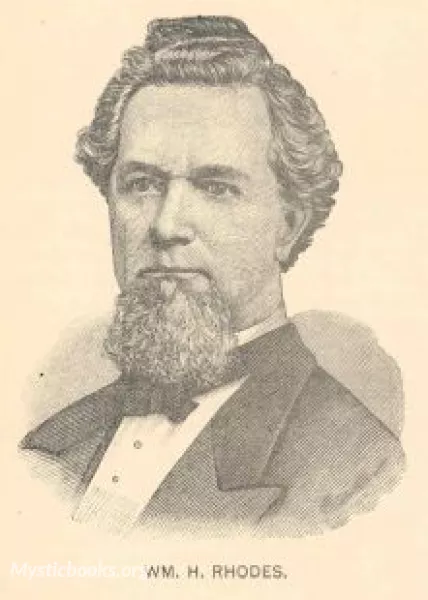
Timeline
Title
Country/Nationality
William Henry Rhodes
William Henry Rhodes, a prominent figure in American literature during the 19th century, left an indelible mark with his exceptional works and unwavering principles. Born in 1822, Rhodes' literary prowess earned him recognition for his notable short story, "The Case of Summerfield," published under the pseudonym Caxton in a San Francisco newspaper in 1871. This essay delves into the life, principles, notable works, and philosophy of this influential author, exploring how he is remembered and his lasting impact on the literary world.
Who was William Henry Rhodes?
William Henry Rhodes was a celebrated American author, born in 1822, known for his literary contributions during the 19th century. He held strong principles of social justice and was deeply passionate about exploring the complexities of the human condition through his writing.
His Principles and Philosophy:
Rhodes' writing was characterized by a profound belief in the power of storytelling to shed light on societal issues and human nature. He was a staunch advocate for equality and used his pen to champion the cause of the marginalized and oppressed. His works often delved into themes of justice, morality, and the struggle between right and wrong.
Notable Works:
Rhodes' most famous work is undoubtedly "The Case of Summerfield," a short story that appeared in a San Francisco newspaper in 1871, published under the pseudonym Caxton. This captivating narrative showcased his exceptional storytelling abilities and deep understanding of human emotions. "The Case of Summerfield" has remained an enduring piece of literature, admired for its engaging plot and insightful exploration of morality.
Remembering William Henry Rhodes:
William Henry Rhodes passed away in 1876, leaving behind a legacy of literary brilliance and social advocacy. He is remembered as a compassionate and principled writer who fearlessly used his craft to address societal issues and promote empathy and understanding among readers. His commitment to social justice has inspired generations of writers to use their art as a means of shedding light on the human experience.
Interesting Facts about the Author:
While Rhodes' writing under the pseudonym Caxton garnered significant attention, he was also known to contribute to several other newspapers and literary magazines of his time. He maintained a level of anonymity, which allowed his works to be judged solely on their merit, rather than the reputation of the author.
Conclusion:
William Henry Rhodes (1822–1876) was a literary luminary of the 19th century, best remembered for his thought-provoking short story, "The Case of Summerfield," published under the pseudonym Caxton. He was an advocate for social justice and used his writing to shed light on human nature and societal issues. Rhodes' works continue to inspire and resonate with readers, highlighting the enduring impact of his literary contributions. Remembered as a principled and talented author, his legacy lives on, influencing writers and readers alike to seek truth, justice, and compassion through the power of storytelling.
Books by William Henry Rhodes

The Old Year and The New
Embrace the passing of time with poetic grace in "The Old Year and The New" by William Henry Rhodes, a mesmerizing journey that intertwines the essence of bygone days with the hope of new beginnings, all in eloquent verse. "The Old Year and The New"...